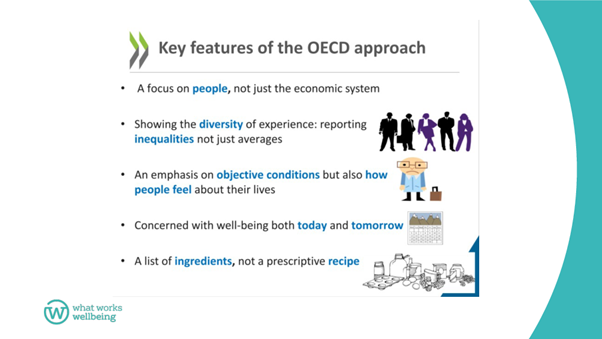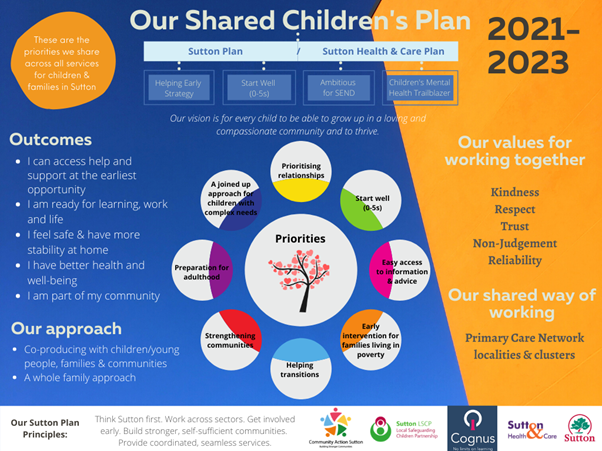Wellbeing policy making with Sutton Local Authority
In partnership with The Health Foundation, we have delivered tailored support to local authorities so they can place wellbeing at the heart of policy making across different focus areas and local needs.
Lorna Jacques, a Senior Strategist at Sutton Local Authority, reflects on her experience of the programme.
I’ve always struggled to understand how to make talking about and looking at wellbeing meaningful in how we design plans and measure our impact for our work with children and families. I wasn’t sure how to move away from a vision statement to real policy. I also wasn’t sure how to evidence real wellbeing change.
Learning about wellbeing together
When I joined a cohort of 10 others across the country, it was a breath of fresh air. Led by What Works Centre for Wellbeing, we learned about the main drivers of wellbeing and the difference in policy and strategy for wellbeing.
These tips were not exactly a one-size-fits-all formula to apply. Rather, they made us think deeply about the complexity of what we want to know about people’s wellbeing, how it might change, and what it is we want to see.

Using the learning in practice
I wanted to apply my new understanding to a specific piece of work that I was leading on for the Borough: our Shared Children’s Plan. This is a plan for our work with children and families aged 0-25, with clear priority areas as a system, including Health, Voluntary Sector, Children’s Social Care, mental health services:

Through conversations with the cohort group, The Children’s Society, and What Works Centre for Wellbeing, I was able to see that an important step for us was to look at our data through a wellbeing lens. This meant thinking about what it shows in terms of wellbeing and wellbeing inequalities.
We worked locally on a small mapping exercise to match services to specific wellbeing activities to understand strengths and gaps. We also designed a survey for 16-18 year olds using the Centre’s wellbeing measures bank. The hope is that this survey will be undertaken on an annual basis.
For the shared Children’s Plan, we developed measures to fit into a framework that looked at people in their context:
- Myself
- My family
- Online
- My community
- My relationships
- My safety
My learning experience as part of the cohort informed my choices, enabling me to include wider measures than I would have previously would have considered. These included employment, and subjective measures for young people on their relationships and lifestyle.
It also helped us to consider a child and family more holistically in our plans and the way we review impact, to make wellbeing more of a goal.
Shifting our systems towards wellbeing
These small steps that we have taken in Sutton to review, map and develop measures, have helped us to think more carefully and intentionally about wellbeing.
As a result of this work together, Voluntary Sector colleagues have now shaped their services around wellbeing indicators.
We have become more confident to be specific, and to work towards evidencing wellbeing. This will be useful for future joined-up responses.
The importance of continued learning
We are very much on a journey here, but the journey itself was a real highlight for me in these last six months or so. It’s so important to nurture opportunities to think critically, learn with others, and not be afraid to really look at the complexity.
I’ve never worked so fast as I did in response to the Covid-19 Pandemic. Whilst that was necessary for the Borough, I’m very grateful to have slowed the pace down for this development work, so that we can keep getting better, listening to the evidence and working on what really matters for children and families.
